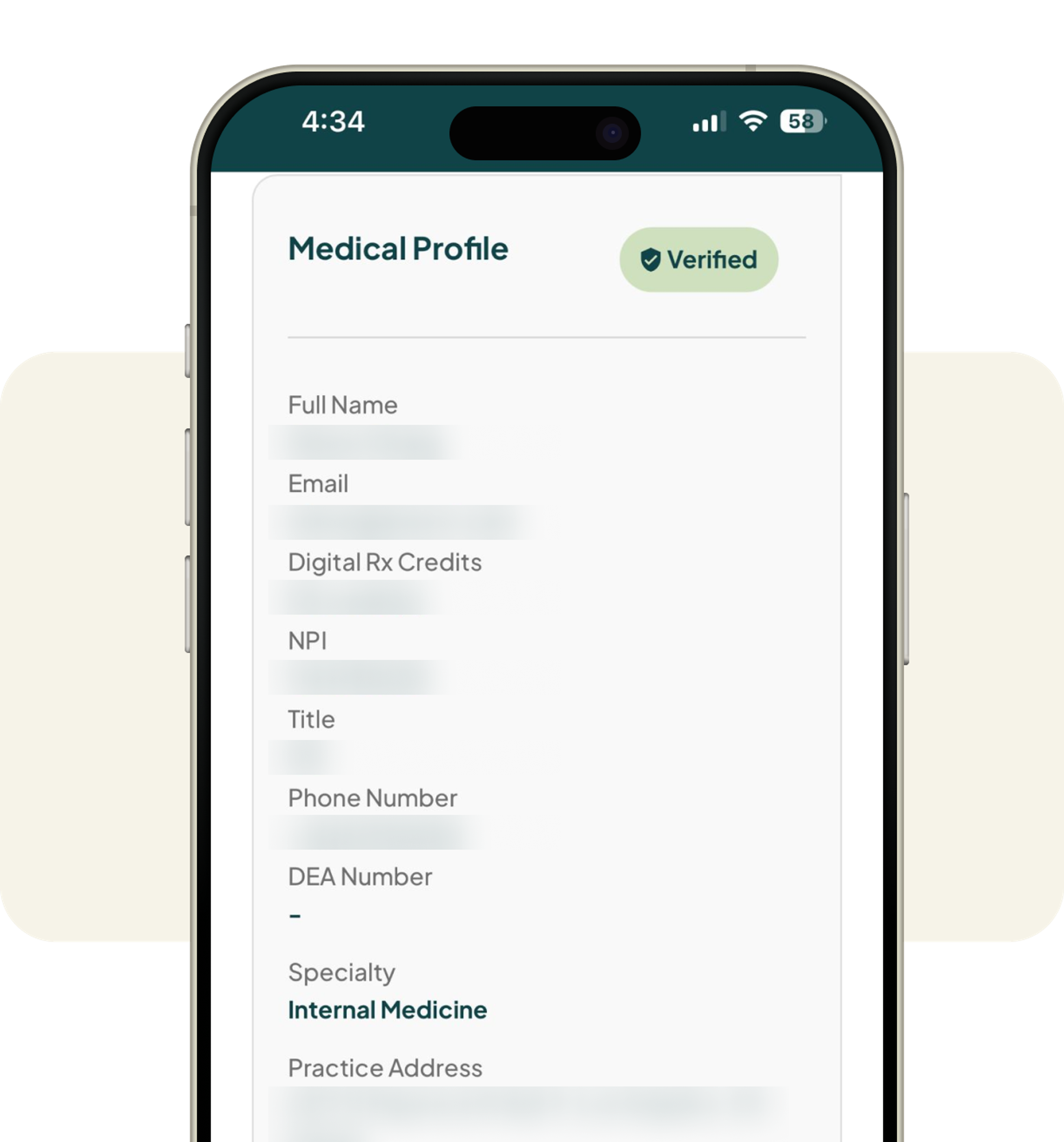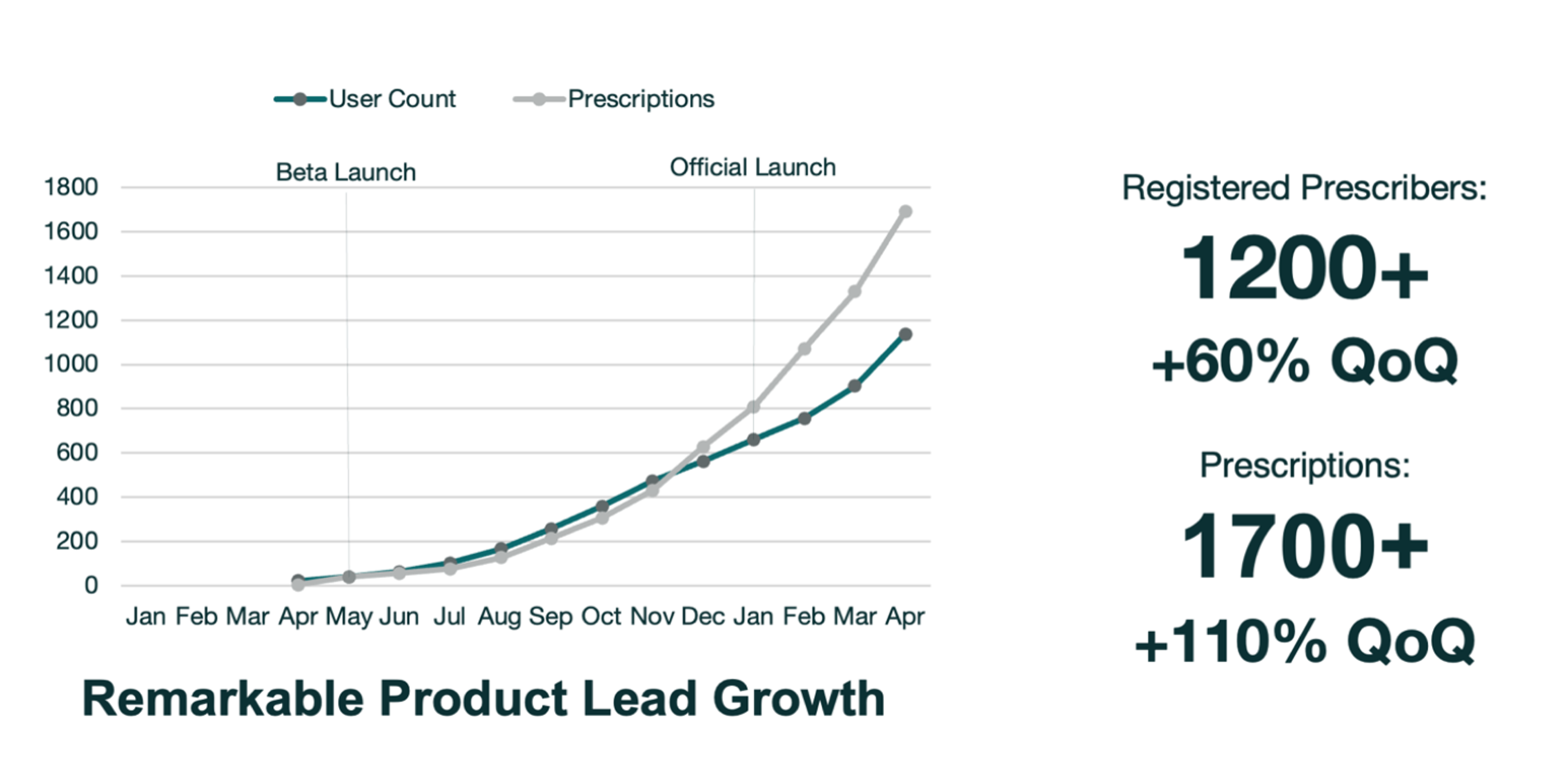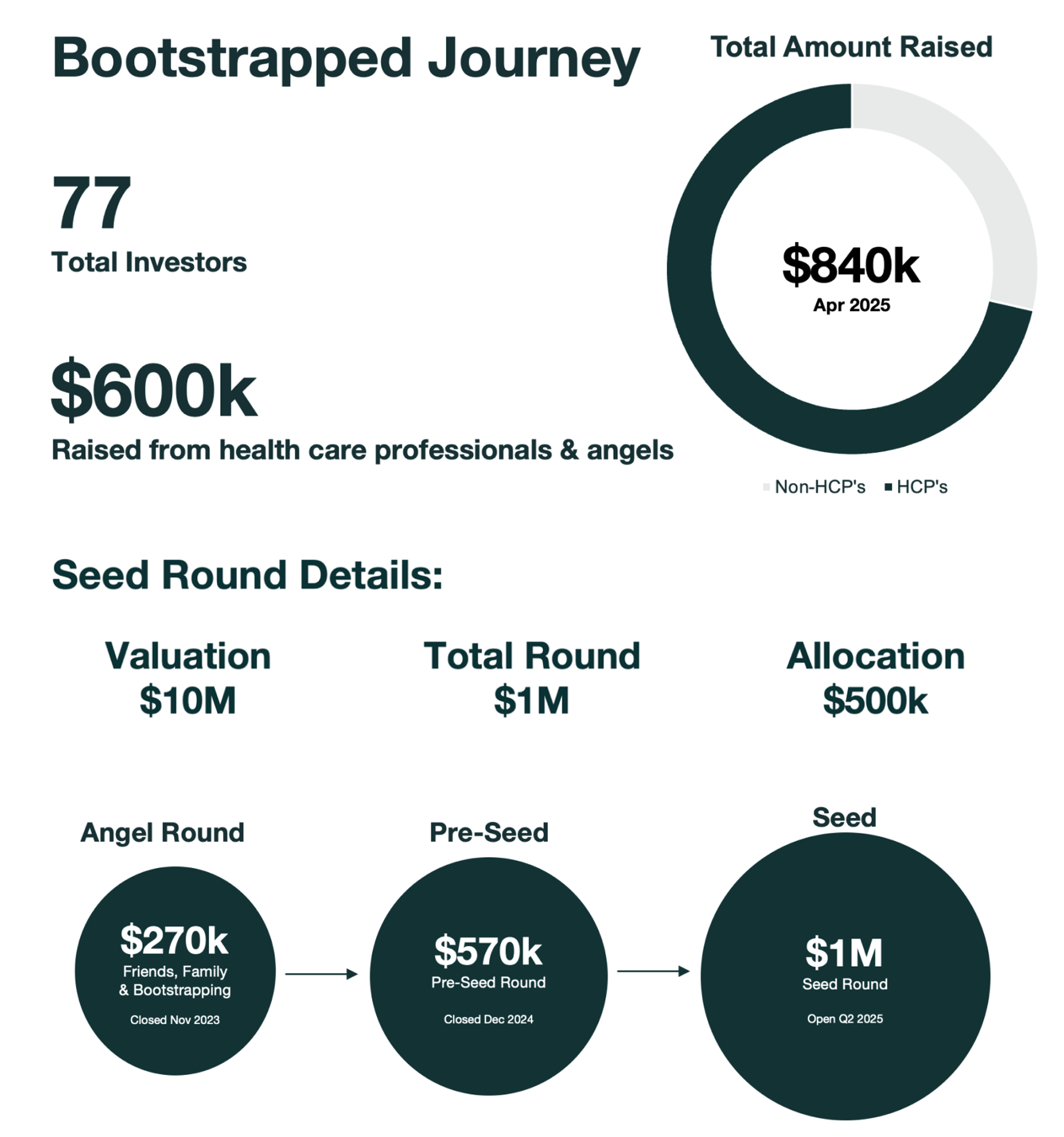Shape How Medicine Will be Practiced - Invest Today
Invest with AngelListeNavvi Investment Details

⬤ Highlights
Physician-developed digital prescribing platform offering transparent, affordable cash-pay medication solutions.
Rapid physician adoption, with over 1,200 prescribers growing at 20%+ monthly.
Strategic nationwide reach with more than 35,000 pharmacies.
Established and stable revenue streams through technology fees and integrated advertising.
Current Round
Raising $1M (opened Q2 2025)
Use of Funds
Expanding prescriber network to 10,000+ physicians by Q2 2026, nationwide launch of Patient Wallet by Q4 2025, and further development of integrated advertising partnerships, targeting $2M ARR by Q4 2026.
Seed Round Breakdown
$250K has already been secured through direct investments, closed April 30, 2025. The remaining round consists of a $500K healthcare crowdsourcing initiative and $250K reserved for strategic angel investors.

Current Round
Investment Perks & Incentives
Why Invest?
As a physician-investor, your clinical expertise and strategic perspective are foundational to eNavvi’s success. These exclusive tiers honor your commitment, amplify your influence, and provide meaningful professional and personal rewards. Choose your ideal involvement to help shape the future of patient-centric prescribing.
Current Round
Use of Funds
Growth Initiatives
$250K
Physician referrals, influencer marketing, and hiring a growth specialist
Research & Development
$375K
Completion of Mobile App & Patient Wallet, biopharma advertising dashboard, prescribing pad optimization, product enhancements
Revenue Initiatives
$75K
Biopharma advertising partnerships, targeted business development outreach
Investment Vehicle
eNavvi is organizing a private Roll Up Vehicle managed by AngelList. The Roll Up Vehicle is an SPV that will purchase securities in eNavvi

⬤ eNavvi Overview
The Problem
Physicians don't know the true cost of the medications they prescribe. When dealing with medications that are out-of-formulary, compounded, or otherwise complex, traditional prescribing workflows become especially opaque and frustrating. Doctors frequently endure cumbersome processes—endless phone calls, manual faxes, and fragmented communications—leading to prescription errors, treatment delays, and significant burnout. Meanwhile, patients encounter hidden and unpredictable costs, causing dissatisfaction, confusion, and reduced adherence to critical treatments.
⬤ The Solution
eNavvi, created by physicians for physicians, radically simplifies prescribing.
This streamlined digital prescribing platform lets doctors:
- Immediately access clear, transparent cash prices for medications, ensuring informed decision-making.
- Easily handle compounded and specialty medication prescriptions, areas typically underserved by traditional EMRs.
- Eliminate administrative hassles, allowing more time to focus on patient care.
With an intuitive and efficient interface, eNavvi empowers physicians and patients alike to collaborate seamlessly, selecting the most suitable and cost-effective medications without the typical insurance-driven obstacles.

Real-World Testimonials

Inderpreet, Oncology
Salt Lake City
eNavvi has drastically reduced the time spent on pharmacy calls, allowing me to focus on providing the best possible care for my patients.

Rohit, Gastroenterology
San Diego
eNavvi has optimized the selection of cost-effective, therapeutically appropriate prescriptions, ensuring patients receive the best care without financial strain.
⬤ Product
Physicians
Verified prescriber accounts, instant medication pricing transparency, and efficient patient management.
Pharmacies
Direct connectivity with a national network of verified prescribers, improved prescription accuracy, robust compliance, and security.
Healthcare Partners
Thoughtfully integrated, workflow-compatible advertising that respects physician interactions.

Traction
Since launching in May 2024
- Over 1,200 registered prescribers with sustained monthly growth exceeding 20%.
- 1,700 prescriptions processed, demonstrating consistent growth.
- Over 30,000 verified monthly physician interactions.

Business Model
Technology Fees
Consistent revenue from fixed fees related to platform usage, prescription handling, and associated reimbursements.
Advertising
Respectfully integrated, non-disruptive advertising generating supplemental revenue.
Revenue Outlook
Anticipated Monthly Recurring Revenue (MRR) of $350K+ and Annual Recurring Revenue (ARR) of $4.2M+ by Q4 2026.

Competitive Landscape
eNavvi uniquely integrates into physician workflows, significantly alleviating administrative burdens and emphasizing ease of use, transparency, and patient-focused solutions.
This approach differentiates eNavvi from market competitors such as iPrescribe, manual workflow, and Skin Medicinals.
Risks
- Early-stage company investments inherently involve risk.
- Regulatory changes may impact operational effectiveness.
- Market competition from larger, financially robust companies.
Investment History

Conclusion
Investing in eNavvi represents a unique opportunity to directly influence the future of healthcare prescribing. Developed and owned by physicians and healthcare professionals, eNavvi remains dedicated to delivering transparent, efficient, and patient-centric healthcare solutions. Join us in redefining healthcare delivery for improved patient and provider outcomes.

